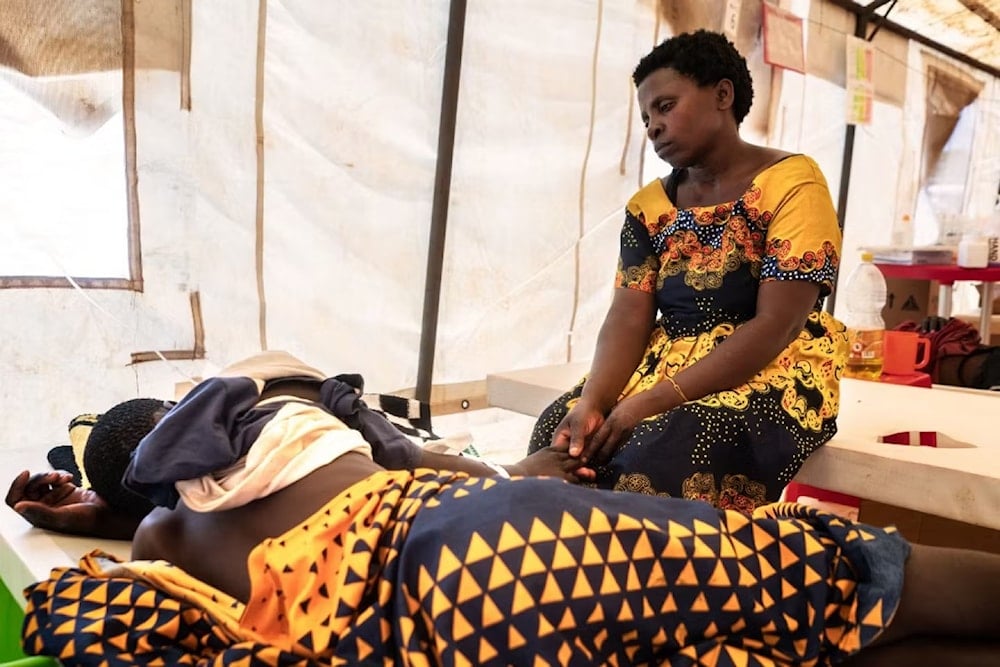Cholera outbreak in Africa kills over 6,800, says health body
The Africa CDC reports over 6,800 deaths in Africa's ongoing cholera outbreak, with nearly 300,000 cases and warnings of further spread due to poor sanitation and lack of clean water.
-

Patients are seen at a temporary cholera treatment center at Bwaila District Hospital in Lilongwe, the capital of Malawi, on February 21, 2023. (Fredrik Lernery/AFP)
The ongoing cholera outbreak sweeping across Africa has claimed more than 6,800 lives so far this year, according to data released Thursday by the Africa Centers for Disease Control and Prevention (Africa CDC), marking a significant increase compared to 2023.
In its latest report, the Africa CDC said the current outbreak has resulted in 6,854 deaths, with a case fatality ratio of 2.3%. A total of 297,394 cholera cases have been recorded across 23 countries on the continent.
Yap Boum II, deputy incident manager at the Africa CDC, issued the update during a virtual press conference held from Namibia. He noted an increase of nearly 50,000 cases compared to the same period last year and warned that the number could surge further in the coming months.
He attributed the potential rise to ongoing torrential rains in affected countries, which could exacerbate the spread of the disease if immediate intervention measures are not implemented.
Read more: Cholera outbreak in Sudan affects 113,600+, kills 3000+
Angola and Burundi among worst affected
The most severely impacted countries are Angola and Burundi, where a lack of access to clean water and poor sanitation conditions have driven the spread of infections.
“There is an escalation of cholera in Burundi, while Angola is experiencing an exponential second wave,” Boum said.
While the situation remains critical in many regions, the Africa CDC noted recent declines in cases in South Sudan, Sudan, and the Democratic Republic of Congo. However, these countries still carry a heavy burden in the broader outbreak.
Urgent need for clean water and sanitation
Cholera, a bacterial infection, is typically contracted through the consumption of contaminated food or water. Public health experts continue to emphasize the need for reliable access to clean drinking water and improved sanitation to prevent further outbreaks.
As the rainy season progresses, health officials across Africa are urging swift action to prevent further loss of life and reduce the scale of the outbreak.
Read more: 22 million to face hunger by September in the Horn of Africa

 2 Min Read
2 Min Read










